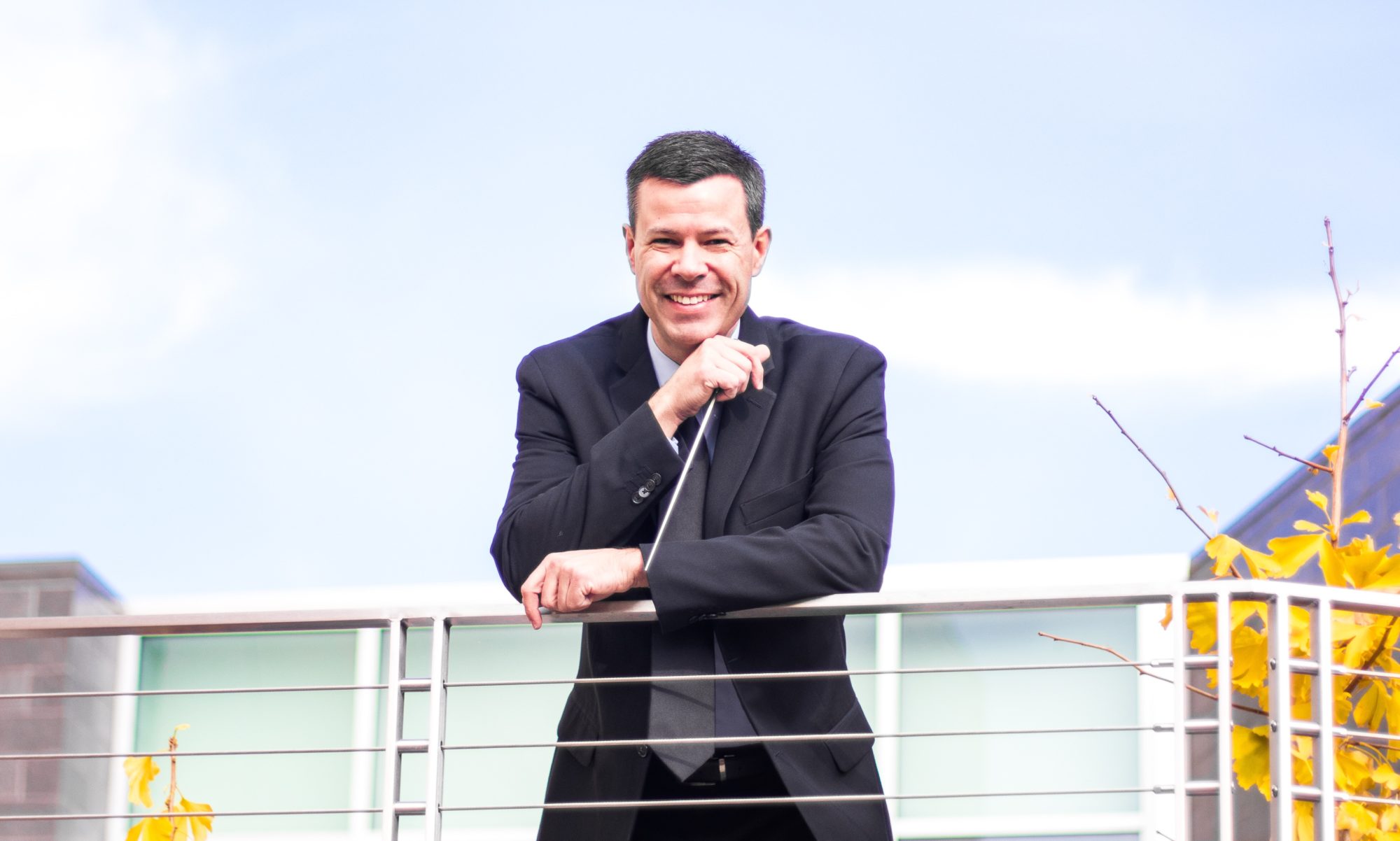Last weekend I hosted the inaugural Orchestra Invitational at the Kennesaw State University School of Music. The venue hosted middle school and high school orchestras to our stage where they performed and were provided feedback from three adjudicators followed by an on-stage clinic right after their performance. What a pleasure it was listening to these orchestras from all over the Atlanta area! In addition, I enjoyed listening to the fantastic clinics that were presented by my colleague Dr. Nathaniel Parker, Interim director of orchestras at KSU, and Mr. David Eccles, Assistant Professor of String Music Education of VanderCook College in Chicago.
The KSU Orchestra Invitational was created to in order to provide performing experience that featured high quality assessment and feedback without the worries of ratings and political scrutiny. I made sure to let directors know that the event was non-competitive and was simply meant for them to receive valuable written and aural adjudication along with a clinic that would not only congratulate students on their progress, but also foster musical growth and inspire students to continue to do their very best.
For the last several years, I have worked to get this event off the ground and this year it finally happened! Over the last week I’ve received a great deal of positive feedback from directors which has been encouraging. It was a lot of work to put together. I’m proud to have helped bring over 500 students to my university’s performance stage, but more than that, I’m proud of the local orchestra directors who “put it out there” during their first semester. It took a lot of courage. It was also nice to see some directors bring their younger ensembles and not just their top performers.
Each of the performances this weekend were good and some were absolutely phenomenal. I can say, however, that not every performance was “contest ready.” This is a GOOD THING! Let me explain.
This is my fourth year in Georgia, and unfortunately I have found that many directors are so worried about their own reputations or the reputation of “their program” that the focus strays from teaching kids to become better musicians. Each semester I meet students who perform in my all-campus (non-major) orchestra who lack some essential string playing skills such as solid left and right technique, the ability to count rhythms, and other essential musicianship skills. While each student has their own story (lack of practice, other activities, etc.), the responsibility for this shortcoming can often be blamed on the student’s orchestra director.
Teachers must remember to focus on teaching concepts and the process rather than just the product. Teachers should not teach students “the music.” What I mean by this is that we must train students to be musicians, not simply “music players.” Students must have the ability to learn music independently and obtain skills that will help them make informed, musical decisions that allow them to interpret and learn a piece of music.
One of the problems I seen in many schools is when directors prepare for adjudicated “festival” performances. In my opinion, the importance and emphasis often placed on adjudicated events is far beyond what it should be. Teachers should not let their ensembles work on three pieces of music for 50-75 minutes per day for months and months just to perform it “perfectly.” If it takes a group that long to master a piece of music, it’s simply too hard for them. These are my opinions and have become part of my teaching philosophy. In the past, I admit I too have been guilty of putting everything I have into a single performance. But, now that I’ve stepped away for a while I come to the realization that this is a somewhat toxic practice in music education.
The orchestras that played this weekend were all solid, but I know some directors were nervous because their groups may not have been fully polished. We must let go of this worry and stop spending all of our time perfecting “the music.” I’m all for a great performance, but at what expense must this come? Forcing our orchestra students to drill through music over and over and over (for months on end!) until it’s “perfect” doesn’t sound overly enjoyable or encouraging. If the music is at the appropriate level, it doesn’t take that long for them to learn it. Allowing students to perform music that fits their playing level allows them to make music, not just chase notes.
Teachers should continue to implement daily lessons that will help students develop their technical skills that will allow them become musicians who are independent learners and interpreters of music as a whole. Our job as music educators is to provide students with experiences that will enable them to enjoy music for a lifetime, wether that be creating, performing, or listening. We must each student’s education before anything else. By focusing on the process and not the product we are training our students to be musicians who can adapt, create, and perform music independently. Most importantly, we are giving our students the tools necessary to be lifelong learners and consumers of music.
